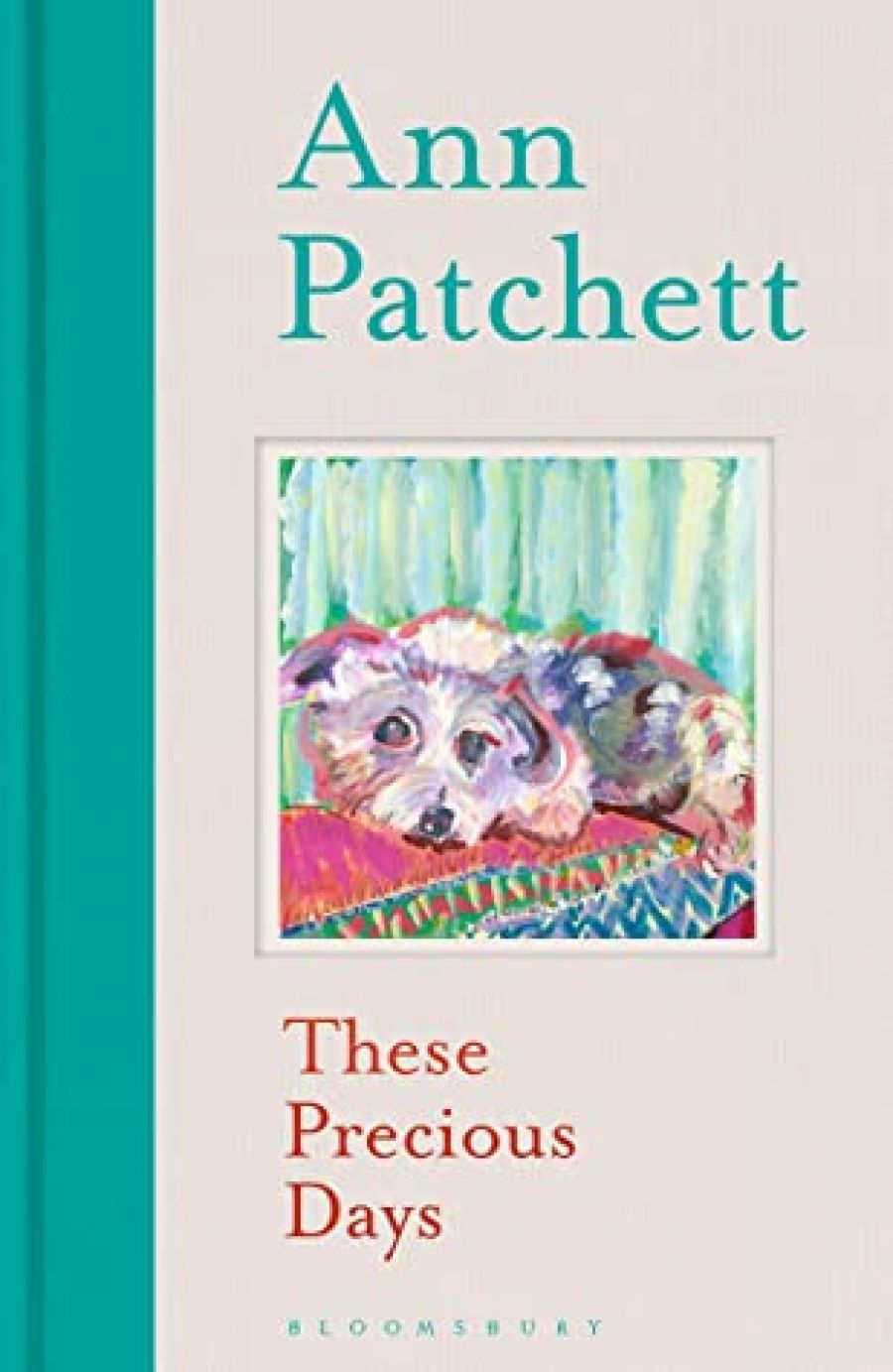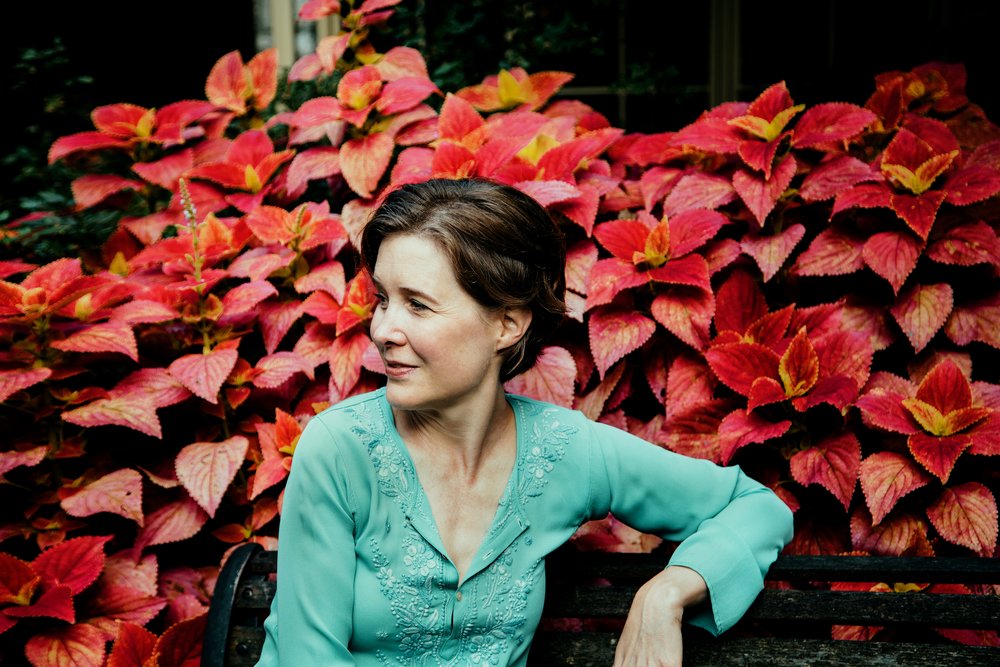
- Free Article: No
- Contents Category: Essay Collection
- Review Article: Yes
- Article Title: Finding shelter
- Article Subtitle: Ann Patchett’s companionable essays
- Online Only: No
- Custom Highlight Text:
In These Precious Days, her second essay collection (after This is the Story of a Happy Marriage in 2013), celebrated American writer Ann Patchett sets out to explore ‘what matter[s] most in this precarious and precious life’. Patchett is the author of seven novels, including Bel Canto (2001), which won the 2002 Orange Prize for Fiction, and her most recent, the internationally acclaimed The Dutch House (2019). When the pandemic struck in early 2020, Patchett did not have a novel in progress and decided that 2020 was not the time to start one. Instead, she wrote essays, something she has always done when she doesn’t have a novel on the go.
- Article Hero Image (920px wide):

- Article Hero Image Caption: American author Ann Patchett (photograph by Heidi Ross)
- Alt Tag (Article Hero Image): American author Ann Patchett (photograph by Heidi Ross)
- Featured Image (400px * 250px):

- Alt Tag (Featured Image): Nicole Abadee reviews 'These Precious Days' by Ann Patchett
- Book 1 Title: These Precious Days
- Book 1 Biblio: Bloomsbury, $29.99 pb, 336 pp
- Book 1 Readings Link: booktopia.kh4ffx.net/QO0vVz
As her readers will know, Patchett is wonderful company – warm, witty, and wise. In these essays she reveals who she is: a loving daughter, a happy wife, a kind, thoughtful friend, and someone with a clear sense of what she wants (see ‘Cover Stories’, on selecting covers for her books) and what she doesn’t (‘There Are No Children Here’, on why she has never wanted children). Two major themes are her passion for books and her love for her family and her female friends. There are also two essays on letting go of material things: ‘My Year of No Shopping’ and ‘How to Practice’.
Many of the essays are about reading and writing, or touch on them. In ‘My Three Fathers’, a loving tribute to her father and her two stepfathers, Patchett writes that although her father was a reader (they read Yeats aloud together), he did not approve of her ambition to be a writer and so she felt ‘unseen’ by him. Nonetheless, he was a major influence – in ‘Two More Things I Want to Say About my Father’, she explains that she wrote with ‘a desire not to offend him’ and felt liberated when he died. ‘The First Thanksgiving’, ostensibly an account of her first Thanksgiving away from home, when she turns on a slap-up dinner for college friends, is really a homage to Irma S. Rombauer’s The Joy of Cooking, which taught her to ‘pay close attention to the text’ and that all she needed in life were ‘self-reliance and a book’. Patchett was not a strong reader as a child, but she explains in ‘To the Doghouse’ how much she loved reading her grandmother’s Snoopy cartoons. She learnt a lot from Snoopy about being a writer, including how to accept failure and to love your own work.
Patchett is a passionate advocate for the arts and the humanities – books especially. Since 2011, she has been the co-owner of a bookstore, Parnassus, in Nashville where she lives. In ‘A Talk to the Association of Graduate School Deans in the Humanities’, she describes the joys of being a postgraduate student at the famous Iowa Writers’ Workshop and finding like-minded people ‘who care[d] about words … and ideas more than they care[d] about food and shelter’. Owning the bookstore reminds her of the pleasure to be had from gathering friends and strangers to talk about books. She relishes her life – ‘I’m pretty much the poster child for how to incorporate the humanities into your life. It is my greatest love, my deepest joy’ – and is proud that she has created a community where all are welcome. ‘I’ve done more good on behalf of culture by opening Parnassus than I have writing novels,’ she says.
The other strong thread running through this collection is love. She reveals her deep love for her father and her two stepfathers in ‘Three Fathers’ (mentioned above), and pays tribute to her mother, an exceptional beauty and a funny, kind, smart person in ‘Sisters’. ‘Flight Plan’ and ‘A Paper Ticket is Good for One Year’ are about her husband, Karl. They have been together for twenty-six years and went to Vienna on their fourth date (she asked him), then waited eleven years to marry – ‘we were both impetuous and prudent’. There are many references through the essays to close female friends, none more moving than the long title essay, ‘These Precious Days’, an account of how Patchett and her husband took a new friend, Sooki, into their home while she was being treated for cancer. This essay says everything about Patchett’s compassion and practical generosity – she acknowledges that her plan wasn’t perfect, ‘but it was better than doing nothing’.
Patchett writes in the introduction to These Precious Days that she is often haunted by death when she is part-way through a novel, and she circles back to death in the epilogue. But this is not a gloomy book. It is a joyful celebration of the things that matter – love, friendship, books, community – and an account of one person’s attempt to live a thoughtful, compassionate life. It is, in Patchett’s words, a heartfelt plea to ‘find the joy in the interim and make good use of the days we have’.


Comments powered by CComment